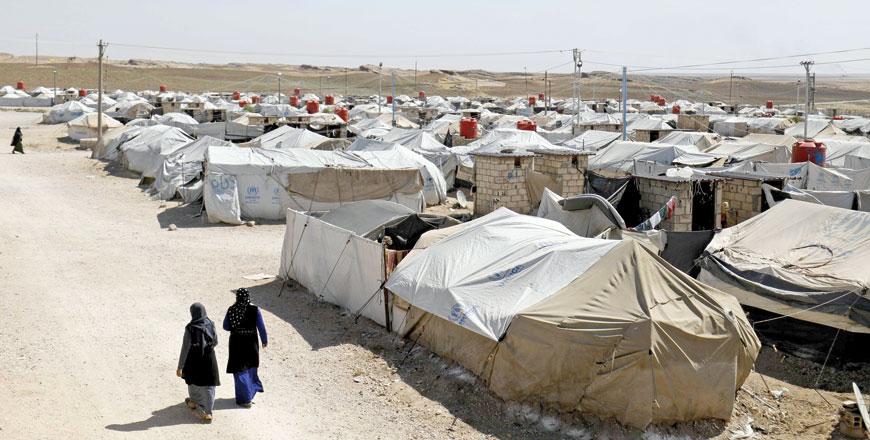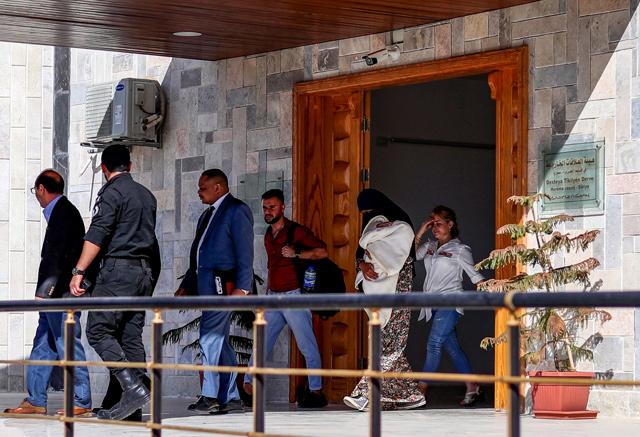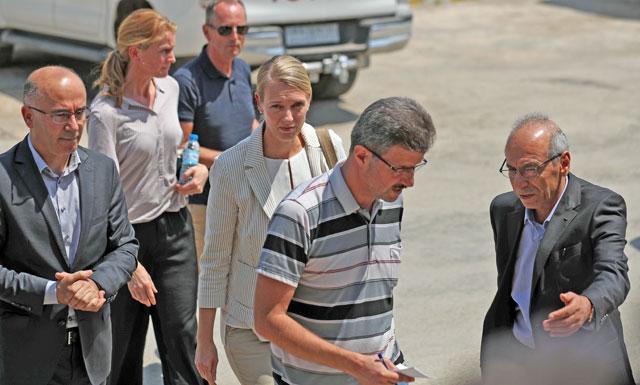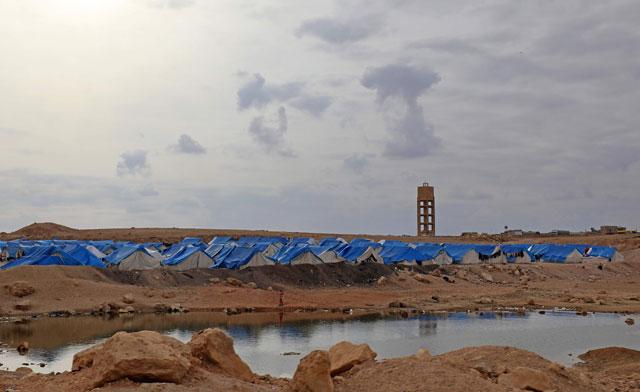You are here
Hundreds of extremist militants in Syrian Kurdish jails
By AFP - Oct 23,2018 - Last updated at Oct 23,2018

Women walk at a camp for Daesh-affiliated people in the northern Syrian village of Malikiya near the border with Turkey, on September 29 (AFP photo)
QAMISHLI, Syria — Syria’s Kurds are holding hundreds of alleged foreign fighters from the Daesh group, but say they will not try them and have urged their home countries to repatriate them.
Hundreds in jail
Kurdish forces who have been fighting Daesh in Syria with backing from the US-led coalition say they hold around 900 of the organisation’s foreign extremists from 44 countries.
The most infamous captives include Alexanda Amon Kotey and El Shafee Al Sheikh, two survivors of the Daesh kidnapping quartet dubbed “The Beatles” due to their British accents. The group was notorious for videotaping beheadings.
Among the detained French extremists is Adrien Guihal, who is said to have claimed a truck-ramming attack in the French city of Nice that killed 86 people in 2016.
According to Kurdish foreign affairs official Abdel Karim Omar, Syrian Kurds also hold 550 women and around 1,200 children from the families of Daesh members.
Alleged fighters are usually detained in jail, while women and children are held separately in camps.
Many of the detainees do not have identity papers, Omar says.
“Some of the women have four children, each from a different father and each father from a different country,” he says.
No trials
Since 2014, Daesh has lost most of a cross-border proto-state they once held in Syria and neighbouring Iraq to various offensives.
Iraq has sentenced dozens of foreigners to death or life in jail over belonging to the extremist group.
But the Kurdish authorities in northeastern Syria have repeatedly said they will not try any foreign fighters.
“We try the local Syrian Daesh mercenaries, but we won’t try the foreigners,” Omar said.
“There are too many of them. It’s a heavy burden we can’t carry on our own,” he said.
“We don’t have any laws for capital punishment... If we did try them and their jail sentence ended, then where would they go?” he asked.
The Kurds were trying to exert “pressure on the international community and countries that have nationals in our region”, Omar said.
“We are trying by all means for those countries to take back their nationals.”
Political considerations
Russia, Indonesia, and Sudan have agreed to take some nationals back, Omar said, and these have been mostly women and children.
But overall, Western countries, reeling from deadly attacks claimed by Daesh on home soil, have been reluctant.
On Tuesday, Pentagon Joint Chiefs Chairman Joe Dunford said the delay in repatriating the foreign captives home for prosecution was due to “political considerations and inconsistent legal frameworks”.
Concerns included “how we identify, prosecute, de-radicalise and reintegrate foreign fighters”, he said.
Two Americans — a man and a woman — were transferred back to the United States in July to be tried.
France has insisted any French adults held by Kurdish authorities should be tried where they are, so long as they face a “fair trial”.
Britain has reportedly stripped Kotey and Sheikh of their citizenship, and made no efforts to repatriate them.
American media reported in August that the US administration was considering sending them to Guantanamo Bay.
Talks?
Omar says the Kurds “have been in touch with the Danish, Dutch and Canadian governments”, but so far without results.
“After advancing past many stages, the Canadian government halted everything,” he said.
Canadian official Stefano Maron however told AFP that “any information on an understanding towards repatriating Canadian citizens from Syria was unfounded”.
Beyond those three countries, the Kurds appear to be showing more leniency with two key member states of the anti-Daesh coalition.
In recent months, the Kurds have selected and brought out several captives for interviews with the international media.
But a Kurdish military commander told AFP an agreement had been reached so “no French or American Daesh fighters were brought out in front of the media to avoid pressure” on both governments, he said.
The commander, who asked to remain anonymous, did not however give more details.
Related Articles
QAMISHLI, Syria — Syria's Kurds said they handed over a Sudanese woman accused of belonging to the Daesh group and her baby to a Sudanese di
SIMALKA CROSSING, Syria — The Kurdish authorities in northeast Syria on Monday handed over four children linked with the Daesh group to Germ
Qamishli, Syria — Shunned by both their Western governments and their Kurdish jailers, foreign men and women who joined Daesh are lingering



















